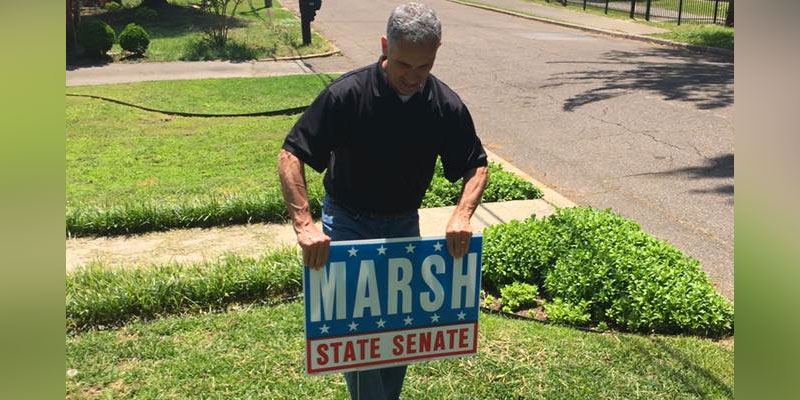Most big legislative battles involve a series of significant events taking place in the days, months and years leading up to the vote.
It can be one event or several events, independent or interconnected. Sometimes there is an important election, a federal mandate, a court decision or a natural disaster to which the legislature needs to respond. For example, the Deepwater Horizon accident and the subsequent federal response brought about a years-long legislative battle on how to distribute the settlement funds.
Other times there exists seemingly routine events no less essential to the legislative process.
Here are four key events leading to the passage of the Rebuild Alabama Act, which included a ten cent per gallon gas tax increase.
Alabama Senate President Pro Tem Del Marsh assembles an infrastructure study committee
On November 8, 2017, Marsh brought together a myriad of stakeholders to begin assessing where Alabama stood with its infrastructure revenue and needs. Among those he brought into the discussion were groups representing small businesses, farmers, technology companies, truckers, the fuel industry and many others.
Through a series of open forums occurring throughout the following year, Marsh sought to arm members of the legislature with input from those groups, as well as data and information from the University of Alabama and Auburn University.
Not everyone who participated ended up supporting the measure, but there were few secrets left by the time the bill came up for debate.
President Donald Trump endorses increased funding for infrastructure
Trump’s endorsement of a 25-cent per gallon gas tax increase did not exactly win resounding praise from around the country. In fact, the “Never Trump” crowd seized on it as a way to try to cut into Trump’s popularity with the conservative base. However, it did have the effect of removing radioactivity from Republican conversations about funding for infrastructure.
Trump’s effort to participate in the conversation and at least propose an outline of a plan brought the issue to the forefront in a new and credible way.
The Business Council of Alabama gets a rebuild of its own
On June 18, 2018, Alabama Power’s Mark Crosswhite notified the state’s largest business organization that his company was withdrawing its membership. Crosswhite was demanding change for an organization which had seen its influence and effectiveness diminish significantly.
A one-page letter sent in June 2018 caused a seismic shift throughout Alabama’s business community and brought about a series of actions reordering the business power structure.
Less than six months later, the BCA named Katie Boyd Britt as its new president and Crosswhite’s effort to unite the business community and strengthen its advocacy network was complete. With so many subdivisions of the business community affected by the different elements of the infrastructure package, it is doubtful passage would have been possible had the business community remained in a fractured state.
Governor Kay Ivey grabs hold of the issue — and doesn’t let go
Ivey had frequently spoken about the need to fund infrastructure improvements. However, speculation had centered around the extent to which she would exert her influence to make it happen.
On February 27, Ivey held a press conference on a dilapidated road in Chilton County and declared that her plan to increase the gas tax and “Rebuild Alabama” was her number one priority. She spent the better part of the next two weeks promoting her plan and petitioning lawmakers for their support.
A common theme heard from policy makers was how much time and work Ivey devoted to the issue. Meetings and phone calls with members are said to have been constant. She made it her issue and was relentless in pursuit of its passage.
Ivey ultimately won big.
Honorable mention: Mobile Mayor Sandy Stimpson endorses the legislation
This event falls squarely within the category of essential symbolism. Stimpson went along with several other mayors in announcing their support for Ivey’s plan. He went so far as to call the plan a “generational opportunity.”
Stimpson’s background is a bit unique as a mayor of a large city, particularly when speaking about legislation involving a tax increase. He is a former chairman of the Alabama Policy Institute, a conservative think tank. He is also a longtime member and leader within the Alabama Forestry Association. Both of those groups voiced opposition to Ivey’s plan in the form in which it passed.
So in certain circles Stimpson’s endorsement had added meaning.
Tim Howe is an owner and editor of Yellowhammer News













